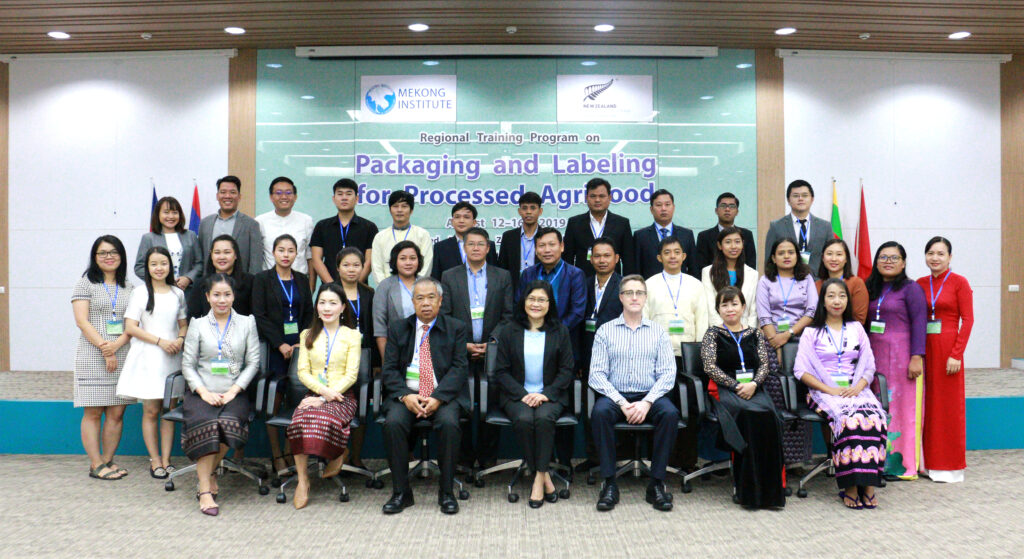From expiry dates, additives and preservatives to ingredients and nutrition facts, let your product do the talking
Mekong Institute (MI), with the generous support of the New Zealand Aid Programme, is organizing a regional training program on Packaging and Labeling of Processed Agri-food on August 12-16, 2019 at its residential training center in Khon Kaen, Thailand. Banking on an inter-sectoral and multistakeholder approach, the training program gathers 28 participants from the government and line ministries, agri-food enterprises and supply chain stakeholders in Cambodia, Lao PDR, Myanmar and Vietnam (CLMV).
The training program consists of a six-part module covering lectures on the fundamentals of food safety, packaging technologies for quality and safety for distribution, storage and sale, Codex standards for food labeling, food preservation and shelf-life determination, along with a structured learning visit to complement theoretical knowledge with actual industry practices. The course is part of a series of food safety training programs delivered under MI’s PROSAFE Project: Promoting Safe Food for Everyone.
In her opening remarks, Ms. Maria Theresa S. Medialdia, Director of Agricultural Development and Commercialization Department, emphasized the interplay between food packaging and labeling and product quality and competitiveness: “Appropriate packaging and labeling plays a crucial role in reducing postharvest losses, thereby ensuring the hygiene and safety of agri-food products. As such, increased quality and standards would leverage your products to compete in regional and global markets.” She continued by encouraging the training participants to utilize this opportunity as a springboard toward championing food safety. “You are our key agents of change. We hope that the knowledge and skills from this training program will capacitate [participants from] both public and private sectors to work and support each other in the implementation of and compliance to such practices,” she stated.
This food packaging and labeling course is anchored on the needs and challenges of agri-food processing SMEs in ASEAN, particularly in CLMV, who are facing barriers in achieving economies of scale and sustaining their competitiveness in local and international markets. A training needs assessment conducted by MI in 2016 found that SMEs from CLMV are input-driven rather than knowledge-driven, making it more difficult to compete in international markets. Among the challenges faced by SMEs include low levels of technological capabilities, lack of skilled human resources in food processing, inadequate food safety and quality management systems, as well as limited access to markets. By promoting safe and compliant packaging and labeling, the training seeks to improve quality, hygiene and food safety that will ultimately boost product competitiveness and expand market opportunities.
To respond to realities, the training participants are expected to apply their gained knowledge and skills by developing action plans in their respective countries aimed at improving packaging materials of processed products (for SMEs); improving and revising food packaging and labeling regulations, standards and guidelines (for government officials); delivering localized trainings; and developing information, education and communication materials for food processors, among others.








